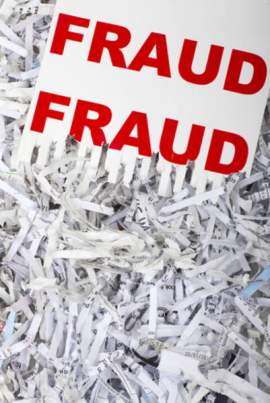
Prevention Disability Fraud Overview

The prevention of instances of false advertising primarily results from the penalties that are enforced against instances of false advertising, even though false advertising law in general is focused on prevention, as opposed to punishment. This is because the primary way in which it serves such a function is by working to bring perpetrators into court for civil chargesFederal Trade Commission
In a way, the primary source of prevention for false advertising is actually these competitive lawsuits, as no company wants to lose such a lawsuit to its competitors, thereby discrediting itself, giving its competitor more integrity in the eyes of the consumers, and often losing money to pay a fine or damages to its competitor.
This type of false advertising law suit crops up much more often than one might think, as one company sues another for a supposedly damaging portrayal of its own products. Many companies are very wary of such false advertising lawsuits, and therefore take the necessary steps to avoid perpetrating any acts that could be even remotely construed as false advertising of this nature.
Generally speaking, there are only three possible remedies to be sought in a false advertising case, all of which would act as major deterrents for using false advertising, especially because these remedies would often likely have to be paid from one company to a competitor. The first remedy is an injunction relief, which will only be granted if the plaintiff can both prove the presence of deception and that irreparable harm was inflicted as a result of that deception.
This is especially easy to prove if any advertisement specifically mentions another company or another company's product by name, thereby leading to the court ordering that the advertiser cease such advertisements immediately. This will normally cost the advertiser a great deal of money, and will also likely be publicized in some fashion, making the company lose face, as well. Contact a fraud lawyer to consult your case.
The second remedy to be sought is corrective advertising, under which the court rules that a corrective advertising campaign must be undertaken to undo the damage wrought by the original false advertising campaign.
This corrective campaign would either need to be undertaken directly by the company perpetrating the false advertising campaign, or that company will need to give money in damages to the plaintiff, so that the plaintiff may perform such a corrective advertising campaign itself. Either way, the perpetrator of the false advertising campaign will have to spend great sums of money on undoing its earlier marketing campaign, and will again lose face.
The third remedy would be outright damages, taking the form of money given from the defendant to the plaintiff. Such damages are normally given in order to restore any profits that the plaintiff has clearly lost as a result of the defendant's false advertising campaign.
Regardless of the exact nature of the remedy pursued, the fact remains that false advertising is prevented primarily by the possible penalties that a company might incur as a result of any given false advertising campaign. The false advertising laws do not prevent false advertising through criminal charges, but the civil charges of false advertising are more than enough of a deterrent, regardless.



















